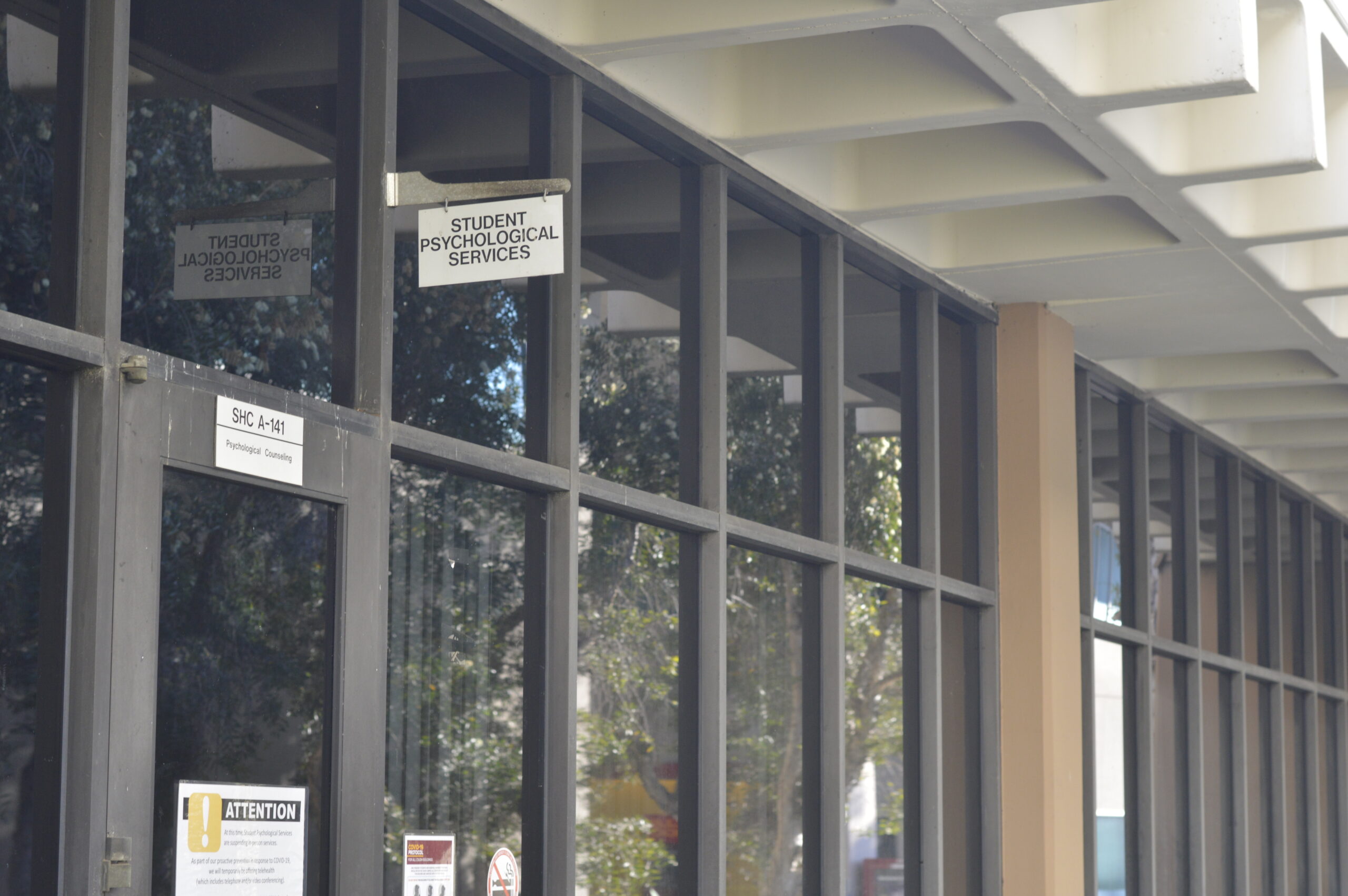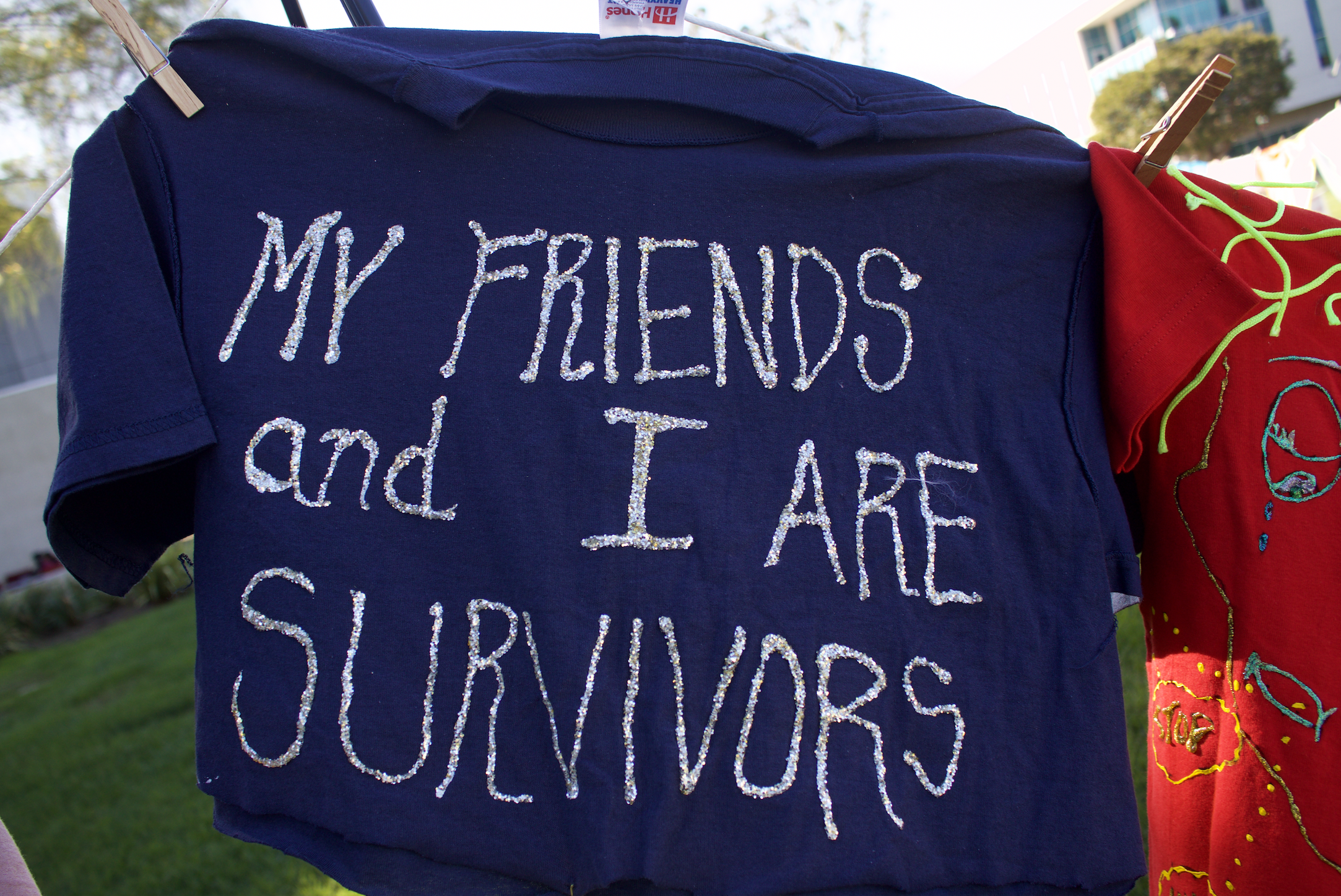Student Psychological Services office located between Welch Hall and the Student Health Center. Photo by Carlos Martinez.
By Anthony Vasquez, Staff Reporter
The winter blues are upon us, and with months of social distancing through isolation at home, seasonal affective disorder could affect students more than usual.
Seasonal affective disorder, or SAD, is a type of depression that usually occurs during the fall and winter months and in some cases can linger into spring and summer
“It especially affects people who live further from the equator because it is linked to the seasons,” Norma Quintero, a CSUDH clinical psychologist, said.
However, even though the seasons are not as sharply demarcated in Southern California as other regions, seasonal depression is still a reality.
What are some of the symptoms?
“Hypersomnia, that means you sleep too much, people tend to sleep excessively during the day and then they’re more sleepy at night. So in general, people tend to sleep about two hours or more per night,” Quintero said.
Along with hypersomnia, Quintero said people with SAD tend to overeat and have cravings for carbohydrates, which lead to increased weight gain. This weight gain can lead to individuals to withdraw socially and to self-isolate.
With self-isolation already a reality for most of the pandemic, Quintero said that people suffering from pandemic-related mental health issues could see them magnified by seasonal affective disorder.
There are also biological links to seasonal affective disorder.
“It has been linked to a lower than normal level of a neurotransmitter called serotonin, which affects mood and behavior, and also to a higher than normal level of a hormone called melatonin and these imbalances link to the disorder,” Quintero said.
How can students manage SAD or receive treatment?
“The first line of defense would be counseling,” Quintero said. “It’s free for [CSUDH] students so I would encourage them to come in and meet with one of us. “Counseling helps increase reflection and allows students to see what may be adding to the stress or the sadness or if there are other factors that might be contributing.”
Along with counseling, Quintero said the importance of getting sunlight during these darker times. She said the sun helps serve as a form of light therapy and if sunlight is not available, there are devices called light boxes that give off simulated light and help assist with gaining vitamin D which can help regulate melatonin imbalance.
She also stressed the importance of exercise and diet. Exercise helps release endorphins, which are our “feel good” chemicals,Quintero said. Foods with vitamin D such as egg yolks, fatty fish, cheese and mushrooms also release endorphins.
“The best treatment, in general, would be a combination of therapy and antidepressants, but these are all options,” Quintero said.
Should students self-diagnosis themselves?
“Mental health terms get thrown [around] very easily,” Quintero said.”Some of the terms get used very loosely and I recommend students [should] come in and talk to one of us if they’re feeling a change. You know yourself…and [when you] find yourself less motivated or just changes in appetite or lacking connection with people, it’s important to be self-aware.”
She said it’s helpful to talk to someone or seek support because self-diagnosis can lead to attachments that may not be entirely accurate, but also said that if you do truly feel you are correct with your self-diagnosis to seek a second opinion through counseling.
CSUDH Student Psychological Services is providing therapy/counseling sessions virtually.
“We’re getting a lot of requests on stress management, managing anxiety, and how to deal with Zoom fatigue,” Josephine Lara, a CSUDH Psychological Services mental health educator, said.
Lara runs the center’s Instagram and is posting reminders and tips for students about taking breaks as well as infographics relating to other forms of depression and anxiety.
For more information and updates on CSUDH Psychological Services follow its social media platforms on Twitter, Instagram and Facebook:
Twitter: @torowellness
Instagram: @torowellness
Facebook: CSUDH Psychological Services
If you are in need of assistance or help you can also contact them through here:
Phone: (310) 243-3818
Email: psychservices@csudh.edu


